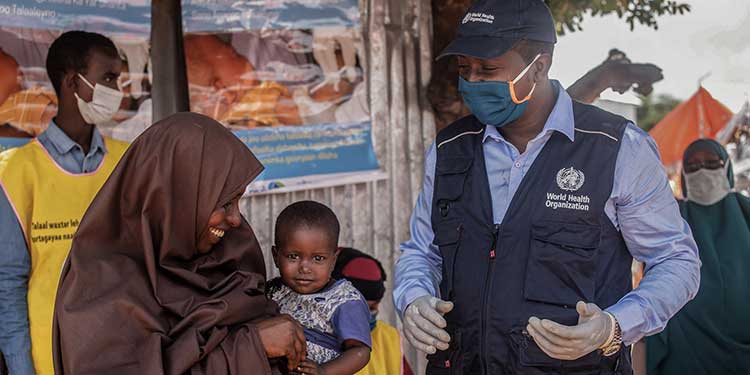
The United Nations (UN) agencies have reaffirmed their commitment to maintaining strong partnerships with Tanzania to improve the health sector.
The goal is to improve access to healthcare for Tanzanians, particularly women and children.
They made the pledges recently at the launch of the integrated Community Health Workers (CHWs) programme and the Community Health roadmap in Dar es Salaam.
“Let me reaffirm commitment to continuing supporting Tanzania for the benefit of this beautiful country’s children, women, communities, and outcomes,” Ms Elke Wisch, UNICEF Representative in Tanzania, noted this.
Ms Wisch also praised the government for significant progress in the health sector, particularly in primary care, and urged the country to learn from other countries in the region and beyond in order to further reform its community health system.
She stated that formalising community health workers is an important step towards identifying vulnerable people and connecting them with the necessary support, whether it is for health, nutrition, water, sanitation or social services.
She also praised the Ministry of Health for its vision and commitment to reforming community health in Tanzania, stating that their programme ushers in a new and exciting chapter in the country’s health sector by addressing many community needs, particularly those of women and children.
“It presents an opportunity to reach every vulnerable individual, providing comprehensive care and support,” she noted.
According to her, the government and development partners collaborated to design, establish and sustain the community health programme.
Dr. Galbert Fedjo, WHO Tanzania Health System Coordinator, emphasised the success of Tanzania’s public healthcare programmes over the last decade, citing the country’s significant investment in the sector.
He then urged the country to invest in evidence-based policies and capacity building, as well as improve cooperation and coordination with development partners.
Furthermore, he emphasised the importance of implementing complementary mechanisms to ensure the program’s long-term viability, such as considering how to sustain funding and subsidise the poor when implementing universal health insurance.
Dr. Tewodros Bekele, Director of Service Delivery at the Susan Thompson Buffett Foundation (STBF), emphasised the organization’s commitment to collaborating with the government.
“Tanzania has been recognised as a nation with deep engagement, and we intend to assist the country in implementing further programmes to improve community health in addition to the one that has been introduced,” he noted.
He emphasised the importance of community health workers (CHWs) in reducing maternal and child mortality rates and promised to collaborate with the government to protect and support them.
During the event, the government officially launched a robust integrated Community Health Workers (CHW) programme, recruiting 137,294 workers from all 26 regions of Mainland Tanzania.
Vice-President Dr Philip Mpango launched an 899.5 billion/- programme aimed at improving access to better health services for all, particularly in primary health care facilities.



